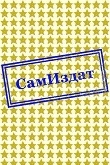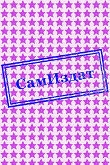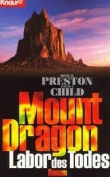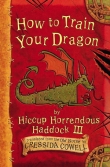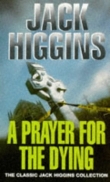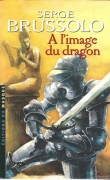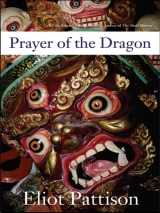
Текст книги "Prayer of the Dragon"
Автор книги: Eliot Pattison
Жанр:
Полицейские детективы
сообщить о нарушении
Текущая страница: 16 (всего у книги 24 страниц)
And then he must have lost consciousness. He was aware only that he was in a storm, with the wind howling, men shouting in fear, deafening thunder and darkness directly overhead. With painful effort he twisted to look upward. If lightning was going to strike him he wanted to see it coming. Despite his pain and the swirling dust, he could see the great black thing. The dragon deity, the thunder maker, the mountain shaker? Then a pebble stung his cheek, awakening him. The dust was scoured away by a downdraft, the shape of the thing outlined by daylight. It was a different breed of demon entirely. It was an army helicopter.
Hands reached up. Knife blades cut the rope that bound him. Orders were shouted, by Bing, by someone in a uniform. Shan was on Hostene’s blanket. Someone was washing his face with a wet cloth, a man with a yellow-streaked face was handing him tea. His shirt was being unbuttoned. Fingers pressed against the pulse in his wrist. He passed out.
Shan lay in a swirling, confused place of memory and fear, in a bed of a remote Public Security ward. The hospital was in the desert, and sand crept into everything, even the cold rice they served him three times a day. He was in a special section reserved for Party luminaries, staffed with special doctors trained in interrogation. They experimented on him, using sodium barbitol, injections of iodine solution, and electric wires and small needles.
“I can’t find a pulse. Just like him, the son of a bitch.”
“Look, he’s vomiting.”
“Excellent. Better than a pulse.”
They tied him naked to a chair and two bald men entered, one with a single long syringe, the other holding a short piece of bamboo.
“No ribs broken,” they confirmed before starting in again.
His handlers were artists. They took pride in never breaking a bone. He could feel the needle that went into his bicep but could not raise his arm to react to it, could only sense the heat oozing up into his shoulder.
All at once he was awake, heart pounding, no longer in his prison of five years earlier but propped against a rock in the central square of Little Moscow. Gao was loading a syringe from a small clear bottle. Over the professor’s shoulder stood a soldier holding a medical kit, nervously eyeing the miners.
“Who was it?” Hostene asked. “Could you see them?”
Shan, unable to speak, shook his head. He leaned and retched, emptying his stomach, then retched again, and again, until nothing came up.
Gao hovered over him with the syringe. Shan held up his hand. “What is it?”
“A painkiller.”
“No,” Shan groaned and, with Hostene’s help, he sat and surveyed the assembly. Bing was calm but the miners looked terrified.
From the lip of the ravine a ladder of small chain links and steel bars hung from the door of the helicopter that had landed. “You’re late,” he said to Gao.
“I’m sorry. The storm delayed me.”
“For the first time in years I was actually happy to see a helicopter.”
Shan pulled Abigail’s note out of his pocket, handed it to Hostene, and fixed Bing with a level stare. “When did she leave?”
Bing’s eyes flashed as he recognized the paper in Hostene’s hand. Before answering he snapped at the gathered miners, ordering them to disperse. Then he said, “I found her wandering, lost, that morning when Thomas was killed. I sent her on her way with a map on a fast mule. She was hysterical. She said she had been knocked unconscious and awakened to find Thomas lying dead beside her.”
“You didn’t try to stop her?”
“Good riddance as far as I could see. I told her how to find the herders’ camps at the base of the first range. They will set her on the right trail to town. She could reach town by this afternoon.”
“And from there?”
“There’s a bus to Lhasa from Tashtul twice a day.”
Shan turned to Gao. “Who else came with you?”
“The pilot, who’s an old friend, and his mechanic, who knows better than to ask questions.”
Shan stood up and took a step, fighting dizziness, then faced Bing again. “I want four gold nuggets. Say half an ounce each.”
“Fuck you.”
“For two men who need to be given a big incentive not to talk.”
Bing eyed Gao, who listened with a curious expression. “It’s a crime to bribe a soldier.”
“Haven’t you heard?” Shan asked. “In the new world order there are no bribes, only business expenses. A reasonable item for your municipal budget. Call it emergency repairs.”
Bing cursed and stepped into the shadows of his shelter. Shan took a step toward the ladder but doubled over in pain. Hostene dropped the gear he was gathering and rushed to Shan’s side. Shan’s raised palm stopped him.
“Go,” Shan said, “climb the ladder. We’ll bring the packs.”
“We?” Gao asked. “You’re in no condition to travel.”
Shan found a familiar face watching uncertainly from the edge of the clearing and gestured toward him. “Yangke will come with us.”
The young Tibetan glanced nervously around the clearing, drawing an unhappy glare from Bing, then gathered up the remainder of the gear and went to the ladder. Shan took three steps before he had to stop, his head swimming.
Bing blocked his way. “No way,” he said.
“There is a way,” Shan said. “Send Hubei with us. You don’t need him to watch the trails once we’ve left.”
Bing stared without expression at his deputy, then slowly nodded. Hubei began retreating into the shadows, then froze as Bing beckoned him. Hubei came forward reluctantly and Bing bent to murmur in his ear, then extracted a folded paper from his pocket and handed it to him. His deputy brightened as he stuffed the pages into his own pocket.
Shan waited for Hubei to climb the ladder, then followed shakily. Gao leaned forward, syringe at the ready. But Shan grabbed the syringe and with an unsteady hand emptied out half its contents before jabbing it into his own arm. Then he headed to the ladder and began climbing.
Once they were on their way Gao asked for the gold nuggets Bing had surrendered to Shan.
“A bribe from you?” Shan said. “Not credible. It needs to come from an unrepentant criminal.” He palmed the nuggets and went forward into the cockpit.
Five minutes later he settled into a small nest of military blankets built for him by Hostene as the machine roared to life and began to rise. Hubei had already found another pile of blankets at the rear of the hold and appeared to be sleeping.
“Where is the pain?” Hostene asked.
With a forced grin Shan pointed to the bottom of a foot.
“There is the only place it doesn’t hurt. He was no expert. Professionals go for the soles of the feet.”
The landscape began to roll past the narrow portholes.
Yangke rose to sit beside Shan. “I have no papers,” he said anxiously. It was a crime in itself to be without citizen registration papers. They were the first thing police asked for when they encountered strangers.
“Nor do I. Nor does Hostene for that matter, not for this region. We won’t stay in town long. Just overnight.”
“It will take us days to make our way back on foot.”
“I gave the pilots two nuggets today, one for each of them. They get the second installment when they pick us up in the morning.” Together, the little yellow rocks represented at least half a year’s pay for the officer, far more for the soldier.
“Why do you think I can help with-”
“You know Chodron,” Shan interjected. “We need to find Abigail. But we also need to track Chodron’s connections in town.” He glanced at their companions. Gao had put on a set of headphones that allowed him to speak to the pilot. Hostene was looking out a window on the opposite side of the ship, as if searching for a woman on a mule. “But first we need to talk about your partnership with Tashi.”
Yangke’s face clouded. He began fidgeting with a cargo strap that hung along the side of the fuselage. “Tashi is dead.”
“If you don’t wish to speak of Tashi, then how about the explosion at the old mine?”
“I don’t know what you mean.”
“Chodron keeps very thorough records. Careful records of the miners, careful records of his village administration. But there is no record of your stealing anything from him. By my calculations, the day he locked the canque around your neck was the day after the old mine blew up. Tashi and you were friends. Tashi knew the miners.”
Yangke absently ran his finger around the rim of the porthole. “He said he could get me to India, to start a new life. He knows. . he knew a monastery in the south I could join. Otherwise, without his help, it takes a lot of money to cross the border when you have neither papers nor passport. I’m an outcast monk. What do I know about making money?”
“Why didn’t you join the miners?”
“The gold on this mountain is not meant to be taken away. What Tashi was doing was different. He told me about the professors seeking old deities. I figured they could make better sense of the past than I could. He offered me a bargain. He knew I had a secret I had kept since I was a boy, even from him.”
“You mean they didn’t discover the old mine,” Shan said after a moment. “You told them where it was.”
“I told Tashi where it was. Tashi told the professors. None of the gold had ever been taken down the mountain. In exchange, Tashi promised to get me across to India. He said he had a foolproof way, that I could ride with gods all the way.”
Shan closed his eyes a moment. He had been so blind. “It had never been taken down the mountain,” he repeated in a hollow voice.
“I had searched when I was a boy, spoken with all the old ones, considered how poor our village had always been. They never used it in the temple, except for a couple small statues. Abigail and Professor Ma made rough calculations based on what they saw at the mine. Tashi told me they thought maybe two tons of gold had been mined. Two tons.”
“But someone else found out about it?”
“Tashi got drunk. Sometimes with Bing. Thomas had started selling liquor. That boy had everything he could want but he had to come across and throw alcohol on our smoldering fires.”
They gazed out at the landscape in silence.
“So Tashi told Bing, and then the mine blew up,” Shan said. “Then Chodron put the canque on you. Because,” he suggested after a long moment, “he was furious that you kept the secret from him all these years.”
“No,” Yangke said in a slow voice, “it wasn’t like that. The explosion was huge. It shook the ground all the way to the village. Chodron came up the slope immediately, demanding an explanation. Bing was already on a bike, riding down to explain. He said that some of the miners’ works had been blown up, had been sabotaged. And there was only one person who hated the miners and Chodron enough to destroy their claims. He told Chodron that someone had stolen explosives out of the stores at Little Moscow the night before. Chodron never goes to Little Moscow. He stays away from the miners, and only speaks with Bing. So, of course, he believed Bing.”
Shan let the words sink in a moment. “Bing didn’t want Chodron to know there were two tons of gold waiting to be found somewhere higher on the mountain. And he couldn’t take the chance of someone finding the old mine and reaching the same conclusion.” He looked at Yangke. “But didn’t you deny blowing up the mine?”
More mountains sped by their window.
“You didn’t,” Shan concluded. “You didn’t contradict Bing.”
Why would Yangke protect Bing, he almost asked, then realized that for Yangke there was perhaps a more important question. “Why did you let Chodron put the canque on you and condemn you wrongly as a thief in front of the whole village? Why did you keep it on? You could have run, you could have hidden, you could have gone to Tashi or even Rapaki.”
“At first, it was to protect Tashi and our plan. Because if I had run then, Chodron would have tried to find me and he would have discovered Tashi’s secret camp,” came Yangke’s simple reply. “But later. . I realized I deserved it. I should have understood that the only possible way to save the old things is to keep them away from the new world. I knew that, but when Tashi said he could get me to India, where I could be a real monk, I was tempted and I succumbed,” Yangke added.
Shan closed his eyes, letting the painkiller do its work. But he did not sleep. He had learned in the gulag that there was a part of the brain that drugs never reached, the part that kept repeating Yangke’s words until, as the helicopter began to descend, he found himself looking at the young man again, understanding the full depth of his pain. Yangke had accepted the canque because he had betrayed the secret of the mine. He had worn it because he believed, as Shan now did, that the secret he had disclosed to Tashi was the reason his friend had been murdered.
Like most older communities in Tibet, Tashtul was two towns, the efficient concrete-and-steel construction Beijing had erected and the traditional Tibetan market town that survived. As they walked from the weed-thatched, crumbling soccer stadium where the helicopter deposited them, Shan found his eyes drawn not to the two– and three-story block structures that dominated the low skyline but to the diminutive, decaying buildings that dated from earlier centuries, a wooden stable here, a crumbling chorten there, a stone tower where Buddhist banners would have been displayed during festivals that had been banned decades earlier.
They stood for several minutes at a rusting war memorial by the entrance to the stadium, Beijing’s monument to the fierce battles that had taken place in the region, Chinese divisions pitted against small brigades of Tibetan resistance fighters.
“I take it,” Gao said reluctantly to Shan, “you are about to propose that I lead this fragile expedition.” As he spoke he cocked his head toward the street. Hubei was running away.
“It would be suspicious for a man of your renown not to be,” Shan suggested. “Not to mention that we have neither money nor friends here. Not even a street map.”
“A street map,” Gao replied, “is one thing you don’t require in Tashtul.” He pointed to the squat block structure two hundred yards away, in front of which a tire was being changed on a decrepit bus by means of a cable slung over a tree limb, pulled by a tractor. “The transportation center.” He pointed to an open-air pavilion beside a row of buildings with glass storefront windows, then to a four-story building, the highest in town, that sported a Chinese flag and a dozen antennae. “The center for food and the center for authority.”
They walked past half a dozen barracks that had been converted to school rooms, behind which were five or six blocks of residences, a mix of old wooden structures and stucco bungalows. Shan did not miss the way Gao, finished with his orientation lesson, gazed back at the flagpole on the government center. Below the flag waved a long red-and-black banner, an unfamiliar ornament, the kind traveling armies used to fly.
“Where should we-,” Yangke began. Then Hostene decided the question for them. Without a word he began jogging toward the bus station. Shan clenched his jaw against the pain in his ribs and followed as quickly as he could. By the time he caught up, the Navajo was already in the station, extracting a photo of his niece from his wallet, gesturing toward it as he approached people waiting on benches, the sleepy vendor at the news kiosk, a wide-eyed girl selling dumplings from a steaming bucket.
As Shan reached his friend he caught several wary glances in his own direction. He had not changed his clothes since he’d been attacked. His pants were torn at the knee, his shirt mottled with dried blood. He drew Hostene into the shadows, calming him, hoping none of the Tibetans had paid attention to his urgent words in Chinese about an American woman.
Gao went out into the sparse crowd now, passing out small-denomination notes, asking softly about a woman who had become separated from a mountain-climbing party after an accident and might be seeking transport to Lhasa.
Too late Shan saw the gray uniforms among the throng of men at the disabled bus. The Public Security officers, often called knobs for the ornaments on their shoulders, were led by a man who, though middle-aged and overweight, had the sharp predatory eyes of every knob Shan had ever known. The officer’s steely gaze fell on Yangke and Shan. With a hand on the radio at his belt he approached. Yangke sank helplessly onto a bench.
Suddenly, Gao was at Shan’s side, thrusting a dark brown souvenir sweatshirt into his hands. XIZANG, it said in gold letters– Western Storehouse, the Chinese name for Tibet-arranged in an arc over overlapping images of a mountain, a yak, and a truck. Shan turned it inside out and pulled it over his soiled, torn shirt. He was heading for Yangke when he froze, every instinct sounding alarms. The station had nearly emptied. The dumpling vendor sat as if paralyzed, knuckles white on the rim of her bucket. The wall behind her began changing colors-dirty brown, then dirty blue, then brown, then blue. He overcame his paralysis to take another step as Hostene was guided by a knob to Yangke’s side, then he felt a firm grip on his lower arm. He did not speak, could not speak, as another knob led him to a bench and pushed him down.
“You can’t take them!” The words, meant as a shout, emerged from Shan’s throat like a moan. With a patient, businesslike air the knob at his side withdrew a baton from his belt. The sight of the weapon sent a new ripple along Shan’s ribs. He could not take another beating, not now, not without the risk of injuries that could force him off his feet for days.
Yangke and Hostene offered no resistance as they were manacled together and led into the prisoner wagon that waited, blue lights flashing, at the front of the station. Shan struggled to his feet, his wrists in front of him, to accept manacles. Then, when none were presented, he staggered toward the wagon. He had caused this. He had to be with them. But the knob at his side grabbed him again, pulling him back, as the doors of the van closed. The last thing Shan saw inside was Hostene, pressing his sacred feather against his forehead.
Chapter Ten
Shan collapsed onto a bench as the prisoner wagon sped away, disappearing in the direction of the government center. There would be holding cells in its basement-dim, damp places with insects and mold and dark, ominous stains on the walls. The two men had come to Tashtul because of Shan’s wishes and now they would be photographed, fingerprinted, and sprayed with disinfectant. Then the knobs would begin their entertainment.
Gradually he became aware of his surroundings, of people filing back into the station, of the girl hawking her dumplings in an unsteady voice, of the first set of knobs who had been in the station going to their car, then driving slowly down the road, of Gao sitting on a bench across the street, calmly reading a copy of the Lhasa Daily.
“Yangke won’t have a chance,” he said as he lowered himself onto the bench beside Gao. “Once they discover he was ejected from a monastery they will be like dogs fighting over fresh meat.” Shan spied something at Gao’s feet. Hostene’s pack.
“They overlooked it,” Gao said.
Shan unzipped the front pocket and saw the American’s passport. “Without this they’ll assume he is one of the old Tibetans. You know what that means.” Hostene would become part of the Ax to Root campaign. They called the special reeducation camps for such men sausage grinders, for the way so many types of Tibetans were thrown into them, only to emerge two or three years later, unrecognizable, in neat homogeneous forms. “Or else he will start speaking Navajo and they’ll declare him crazy. They’ll feed him through a slot in a cell door for the rest of his life.”
Gao gestured to a brown sedan that had pulled to a stop at the curb. A short, stout Chinese man in a blue cardigan sweater and white shirt climbed out of the driver’s seat, offered Gao a quick bow, and opened the rear door. Gao rose and, taking Hostene’s bag, stepped into the car then waited with the door open. It took nearly a minute for Shan to decide to join him.
For much of the drive Shan’s eyes were fixed on the central structure of the town, its front clad in faux marble, as he made quick calculations. How fast could he reach the basement of the building if he leaped out of the car? How long would it take Yangke and Hostene to be processed before they were thrown into the cells and the torment began? Where could he flee with them if he could somehow effect their escape? He was responsible for them, and, blinded by everything except the need to help Abigail and Lokesh and Gendun, he had led them into a trap. He had trusted Gao and now Yangke and Hostene were paying for his mistake.
“On my very first day of training as a physicist,” Gao declared, “my professor, an elderly Russian, told me, ‘Never trust reality.’ He wrote it on the chalkboard in Chinese and Russian. ‘You will spend the next few years learning that the reality you have always experienced is a myth,’ he said. ‘You will spend the rest of your lives proving that all the important forces of the universe are unreal.’ ” Gao gazed from the car at the banner floating above the government center.
Shan studied the famed scientist, perplexed by Gao’s interest in the black-and-red banner that fluttered over the government center. “I wasn’t thinking about physics. I was thinking about birds,” Shan said.
“Birds?”
“Your lammergeiers. Karl, Friedrich, Albert. Their names say it all.”
Gao carefully folded the newspaper. “I don’t understand.”
“I think you do. Famous theoreticians. They never had to be accountable for the terrible effects of their words and their equations, never had to act in the real world. You’re going to have to choose, Gao.”
The scientist did not respond. He stared out the window for the rest of the ride.
They arrived at a tidy two-story building that consisted of two traditional Tibetan houses that had been joined together with stuccoed walls. SNOW LEOPARD CULTURAL NOVELTIES INC. proclaimed a small sign over the central entry.
“Kohler,” Shan guessed.
“A joint enterprise,” Gao explained. “He is managing director, but we are equal owners.”
A sober well-dressed Chinese matron, introduced as the office manager, met them at the door and escorted them through a hallway lined with shelves full of figurines in porcelain, clay, bronze, and brass. Fat laughing Buddhas. Yaks, some wearing comical expressions. The Potola Palace. Camels. Mythical garuda birds. Tibetan goddesses.
They arrived at a simply furnished office in the front of one of the joined houses, where a tea tray awaited them. Shan poured out two cups as Gao conferred with the woman, who wiped tears from her eyes as she spoke. He studied the office. A framed certificate hung above a desk, testifying to the registration of the company ten years earlier. On another wall was a map with pins inserted in over thirty cities, inside and outside China, including half a dozen in India. Framed photographs stood on a small table. Kohler, with a dozen workers posed in front of the building, apparently at some kind of company celebration. Gao with Kohler, ceremonially shaking hands behind a table spread with two dozen different types of figurines. Kohler in front of the Taj Mahal. Kohler on a white sand beach with a woman in a very brief swimming suit. Several photos featured Thomas, spanning a period from when he was perhaps twelve years of age to the recent past. In one, the boy held four figurines of bronze in his hand.
“He designed those,” Gao explained over his shoulder. “It was the first run out of the little foundry Heinz installed last year. Thomas would always spend a week or two here each summer.”
Through the window Shan saw the woman trot to the car, where she spoke to the driver, then got in. A moment later the sedan sped away, back toward town.
“Where is Heinz?” Shan asked.
“Lhasa. When I called him on the satellite phone to say Abigail was with us in the mountains he was about to come back but he received word that there was some trouble with a shipment. He decided to take care of it before returning, to avoid the need for a trip later. We spoke again when. . after Thomas left. Now he’s also making arrangements for Thomas’s body, which rests in the morgue here.”
Shan poured himself more tea as Gao sorted through papers on the desk. Through the window, in the distance, dimly outlined against the cobalt sky, he could make out the low ranges that led to Sleeping Dragon Mountain. “Where does the trail emerge from the mountains?” he asked.
“It branches into three forks as it approaches the town, following different streams. There are farmers living along each fork. Abigail will be seen by someone.”
“You need to speak with them,” Shan stated. “I am going to Public Security.”
“The driver is asking the farmers now. And the worst thing you could do for your friends would be to go to the government center.”
Shan searched Gao’s face, trying to decide if his words were meant as a threat. “Then there is somewhere else we must visit,” he announced, and bent near Gao’s ear to speak in a low voice. Gao called for the office manager.
Shan expected Chodron’s Tashtul home to be a small apartment, perhaps even an assigned room in a government guest quarters, not an ample bungalow at the edge of town. It was larger than the headman’s home in Drango village, with well-tended flower gardens surrounding it. Two bicycles leaned against a railing of painted metal pipes that flanked the concrete walkway to the door.
Gao declined with a shake of his head as Shan got out of the car and gestured toward the house. Shan ventured up the walkway, studying the house, trying to assess what he would find inside, worried about the two bicycles. The house was of simple, new construction, a beige-painted block with brown metal shutters. The front windows were covered with curtains. The glass panes in the door displayed decals of flowers and panda bears.
There was no answer when he knocked. He tried the doorknob, found the door unlocked, and stepped inside.
The lining of Chodron’s Tashtul nest was far more luxurious than its modest exterior. The spacious sitting room Shan stood in held four upholstered chairs and two sofas, arrayed around a lush sculptured carpet to face a unit on the wall holding a large television set and other electronic equipment, and shelves of videos and discs.
Fast-paced music came from a room down a dim corridor, a Western instrumental featuring saxophones, drums, and electric guitars. He should flee, a voice inside him shouted. He would be unable to help Hostene and Yangke if he were thrown into the same cell. Instead, he went farther, reaching a dining area with chrome-framed chairs surrounding a table rimmed with carved lotus flowers. The kitchen counter bore an array of small appliances he could not name. It was not the house of a Tibetan family. Behind the dining table, opposite the kitchen, was a half-open door that led to a room that seemed to be half office, half storage area. Along one wall were cardboard cartons bearing labels for various electronic devices. Beyond them was a desk on which stood a radio similar to that which he had seen Chodron use in Drango. Over the desk, pinned to the wall, was a collection of name tags bearing Chodron’s name, with legends identifying Party gatherings, some with clips, some on lanyards.
Shan began opening drawers, quickly passing over one that contained office supplies, another brimming with personal items like disposable razors, skin cream, unused wallets, and packages of breath mints. He paused over one that was crammed with file folders and settled upon two files and a ledger book from the bottom drawer, whose separate lock yielded to the careful levering motion of a letter opener. When he had read through them he reentered the dining room and gazed upon the riches of the house. In his mind’s eye he saw Gendun lying prostrate in Chodron’s village, his limbs shaking from nerve damage. Shan started at a noise from the rear of the house. Through the kitchen window he saw an old Tibetan hoeing weeds in a bed along the wall.
At the kitchen sink Shan washed his hands and face. He quickly explored the closet by the front door, then grabbed a hanger that bore a dark suit and a gray shirt inside in a plastic cleaner’s bag. In the office he stuffed the sweatshirt Gao had bought for him behind a box, threw on the shirt and the suit jacket, and pulled the trousers, far too loose to fit properly, over his own tattered pants, fastening them at the back with a spring clamp. He grabbed a lanyard from which a name tag was suspended, selected the thinnest of the wallets, and hastily worked with a rubber band and paper clips. Before leaving the office he retrieved the letter opener, unscrewed the back cover of the radio, and pried several components away from their fittings before replacing the cover.
She was in her midthirties, taller than Chodron, with the strong, full features of a Manchurian. Still dripping from her bath, she wore only white briefs, her long hair covering her breasts. She did not raise the towel she held, did not even seem to breathe when she discovered Shan sitting facing her at the end of the dining table, his hands folded over the ledger and files in front of him.
Shan had chosen the chair by window, with the glare of daylight behind him. Chodron’s gray suit jacket was only slightly too large in the shoulders. He had blocked the view of his feet with a briefcase, knowing his tattered boots would betray him in an instant. But he need not have worried for the woman’s gaze remained on the little black leather folder hanging from the lanyard around his neck.
He opened the top file and lifted a pencil from the table. “Let’s start with your name,” he said in a level voice. He had spent twenty years on this side of the interrogator’s table.
The woman’s mouth opened and shut several times but no words came out.
“Get dressed,” Shan instructed, the weary impatience of a senior official in his tone. “Get a glass of water. Get a chair.”

